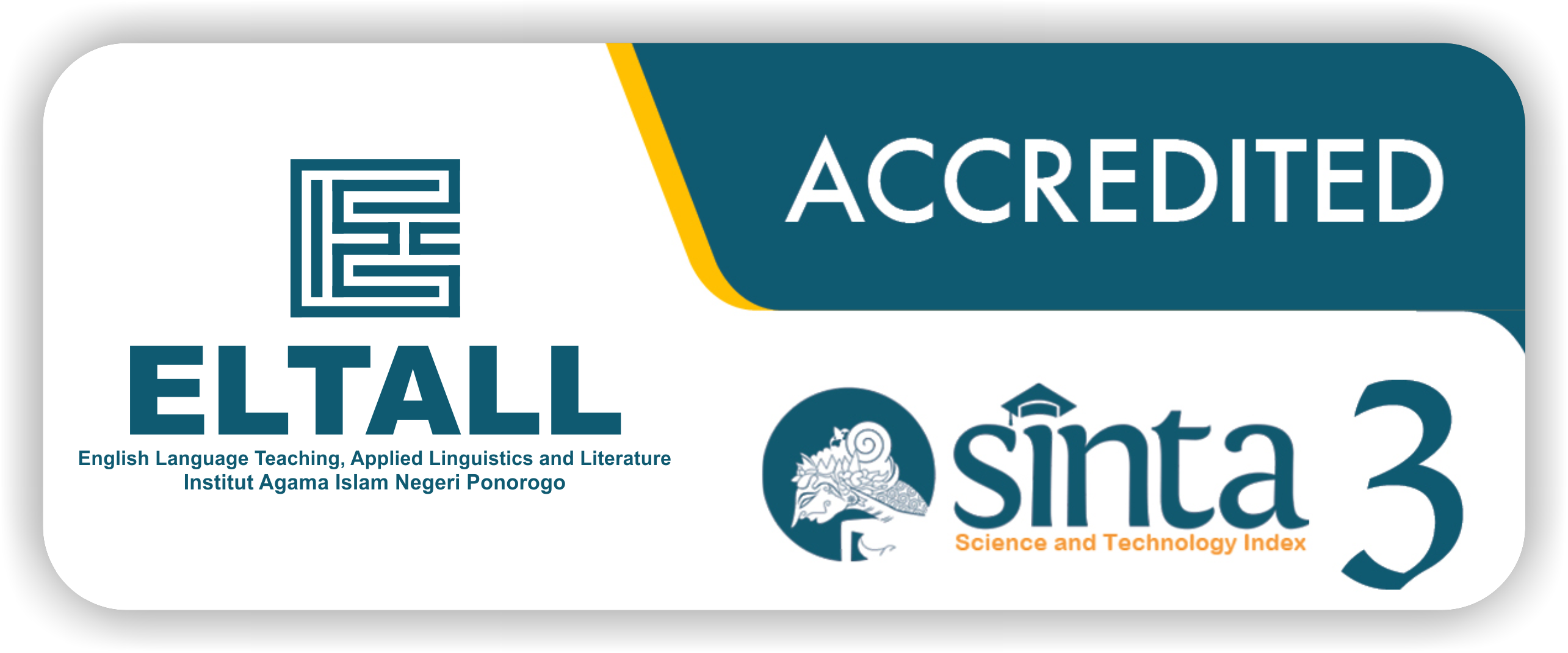Development of Contextual English Language Teaching Materials Based on Sport Coaching Education
DOI:
https://doi.org/10.21154/eltall.v6i1.10728Keywords:
contextual language teaching, need analysis, sport coaching education, ESPAbstract
Despite the prominent role of English in the sports industry, few studies have explored the demand for English competence among future sport coaches, especially in the context of an increasingly globalized sporting domain where communication is becoming key in diverse trading environments. However, the students who are studying Sport Coaching Education typically do not have English skills that are specifically focused on real-life coaching situations. This study is developing teaching materials for teaching English language using the Contextual Teaching and Learning (CTL) approach specifically for the needs of the Sport Coaching Education students. In this study, a Research and Development (R&D) design based on the ADDIE (Analysis, Design, Development, Implementation, and Evaluation) model was used through a needs analysis, material development, expert validation, and pilot testing. The needs analysis indicated a considerable gap between students’ current English material and the communicative needs of the sport coaching specialism. The students were mostly interested in sport-specific vocabulary and more speaking practice in coaching contexts. The materials developed involved listening, speaking, reading and writing activities based on authentic coaching situations. Expert reviews scored the materials favorably (4.6/5 score on average) on relevance, pedagogical effectiveness, and feasibility. It concludes that contextual, sport-specific English resources are useful for improving language competence and coaching preparedness. Linking ESP to real-world practice ensures that CTL serves as far more than just an academic pursuit in sport coaching education, connecting them far more directly with the professional world.
Keywords: contextual language teaching; need analysis; sport coaching education; ESP
References
Abdi, M. I. (2011). Contextual Teaching and Learning (CTL) dalam Pembelajaran PAI. Dinamika Ilmu, 11. https://api.semanticscholar.org/CorpusID:147013355
Dudley-Evans, T., John, M. J. S., & John, M. J. S. (1998). Developments in English for Specific Purposes: A Multi-Disciplinary Approach. Cambridge University Press. https://books.google.co.id/books?id=FY5ChNRKtxwC
Hudson, C., & Whisler, V. R. (2008). Contextual Teaching and Learning for Practitioners. Journal on Systemics, Cybernetics and Informatics, 6, 54–58. https://api.semanticscholar.org/CorpusID:10784496
Hutchinson, T., & Waters, A. (1987). English for Specific Purpose; A Learning-Centered Approach. Cambridge University Press.
Limbong, S., Palayukan, N., Djajasasana, E. E., & Tandibura, F. (2024). Can Contextual Teaching and Learning (CTL) Revolutionize Cadets’ Speaking Skills in Maritime English? Voices of English Language Education Society, 8(2), 393–402. https://doi.org/10.29408/veles.v8i2.26651
Miller, L. (2015). Sports Communication as a Way to Develop Critical Competencies in the L2 Classroom. RELC Journal, 46, 104–189. https://api.semanticscholar.org/CorpusID:145268256
Richards, J. C. (2006). Communicative Language Teaching Today. www.cambridge.org
Rodríguez, F., & Kandel, B. (2020). Language-Supportive Coaching Practices for Athletes Who are Learning English. Journal of Sport Psychology in Action, 12, 1–12. https://doi.org/10.1080/21520704.2020.1806158
SAVIGNON, S. J. (2002). Linguistic Theory and Classroom Practice. In S. J. SAVIGNON (Ed.), Interpreting Communicative Language Teaching (pp. 1–28). Yale University Press. http://www.jstor.org/stable/j.ctt1npsh9.4
Downloads
Published
Issue
Section
License
Copyright (c) 2025 ELTALL: English Language Teaching, Applied Linguistic and Literature

This work is licensed under a Creative Commons Attribution-NonCommercial 4.0 International License.
All articles published in ELTALL (English Language Teaching, Applied Linguistics, and Literature Journal) are licensed under the Creative Commons Attribution-NonCommercial 4.0 International License (CC BY-NC 4.0).
Under this license, authors and readers are free to:
- Share. copy and redistribute the material in any medium or format
- Adapt. remix, transform, and build upon the material
Under the following terms:
- Attribution. You must give appropriate credit, provide a link to the license, and indicate if changes were made. You may do so in any reasonable manner but not in any way that suggests the licensor endorses you or your use.
- Non-Commercial. You may not use the material for commercial purposes.
Notices:
- The licensor cannot revoke these freedoms as long as you follow the license terms.
- No additional restrictions. You may not apply legal terms or technological measures that legally restrict others from doing anything the license permits.
For the full legal code of the license, please visit: https://creativecommons.org/licenses/by-nc/4.0/













